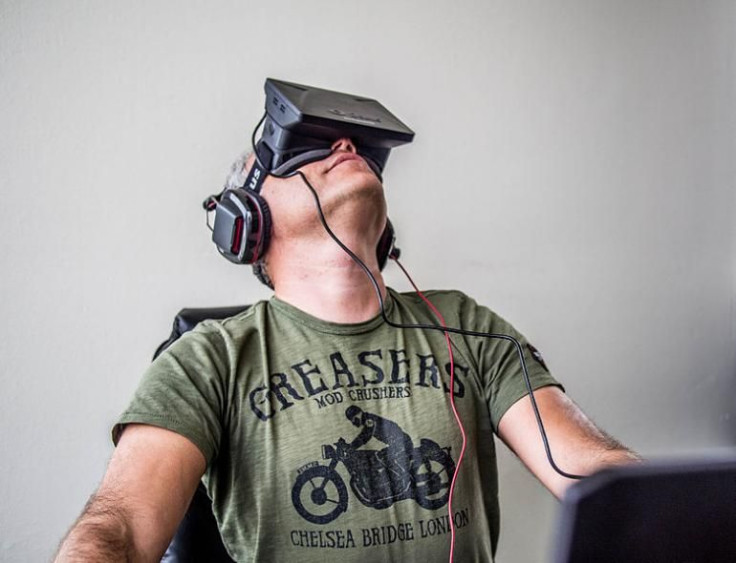Oculus VR CEO: We're Still Months Away From Shipping Virtual Reality Goggles To Consumers

Oculus Rift, the celebrated virtual-reality startup launched on Kickstarter and acquired by Facebook in a $2 billion deal earlier this year, is months away from shipping a consumer product, CEO Brendan Iribe said Tuesday.
"We are still working on a number of aspects, but the hardware is almost there for the consumer product. The headset is largely finalized at this point," Iribe said during an onstage interview at Web Summit in Dublin, Ireland.
Since the deal was announced in March (it was approved by regulators in June), Oculus has expanded to more than 200 employees from 50, building out both the product team to get the goggles ready for market, and the research and development team including 3D gaming pioneer John Carmack, to invent the future of virtual reality.
The need to build out both teams simultaneously was a key rational for agreeing to a deal with Facebook, rather than facing raising money in six or 12-month intervals. "We really needed to focus on R&D and typically it is hard for a startup to do both research and have a product group to bring something to market," Iribe said.
Iribe said he isn't sure what the "killer app" will be for virtual reality, whether its entertainment, gaming or just communication. "Imagine if you could throw on a pair of sunglasses and have the same conversation with different people around the world face-to-face; that's really transformative," he said. "Think about the mediums that have transformed the world like the telephone or the Internet. This is an application that is going to appeal to billions of people."
Whether Oculus, now backed by Facebook's billions, will ultimately be a leader in virtual reality, is still an open question. Oculus is powering an entry from Samsung Electronics Corp., Gear VR. Sony Corp. has shown prototypes of its Project Morpheus, and even Google entered the fray with a do-it-yourself cardboard workaround.
Iribe says he used to worry that early not-quite-ready virtual-reality products could give the technology a bad name before it ever goes mainstream. That's partly why Oculus has been developing its product mostly in the open. He even went so far as to show a team from Sony an early Oculus version in hopes that when they launched a product it would be "as good or at least close." "I don't think you can poison the well for VR at this point," he said.
Iribe praised Tesla founder Elon Musk for opening up the electric car maker's portfolio of patents to encourage other manufacturers to get into the space. "I hope in a decade Oculus is a thought leader, but there will be other companies that come up, maybe ones we haven't heard about," he said.
Oculus' latest prototype, dubbed Crescent Bay, solves a number of issues such as latency, tracking and accuracy, but a key engineering challenge remains: how to deliver inputs from users. The computer has the mouse; a laptop has a track pad; tablets and phones have touch screens. Past iterations of VR goggles have included a glove, but that's unwieldy.
"One of the things we haven't solved yet is we still don't have inputs," he said. "It's not just your hands; we also need some sort of tactile interface to press. We always say that VR is going to transform human interaction, but we are trying to figure out where does VR input begin?"
© Copyright IBTimes 2024. All rights reserved.






















